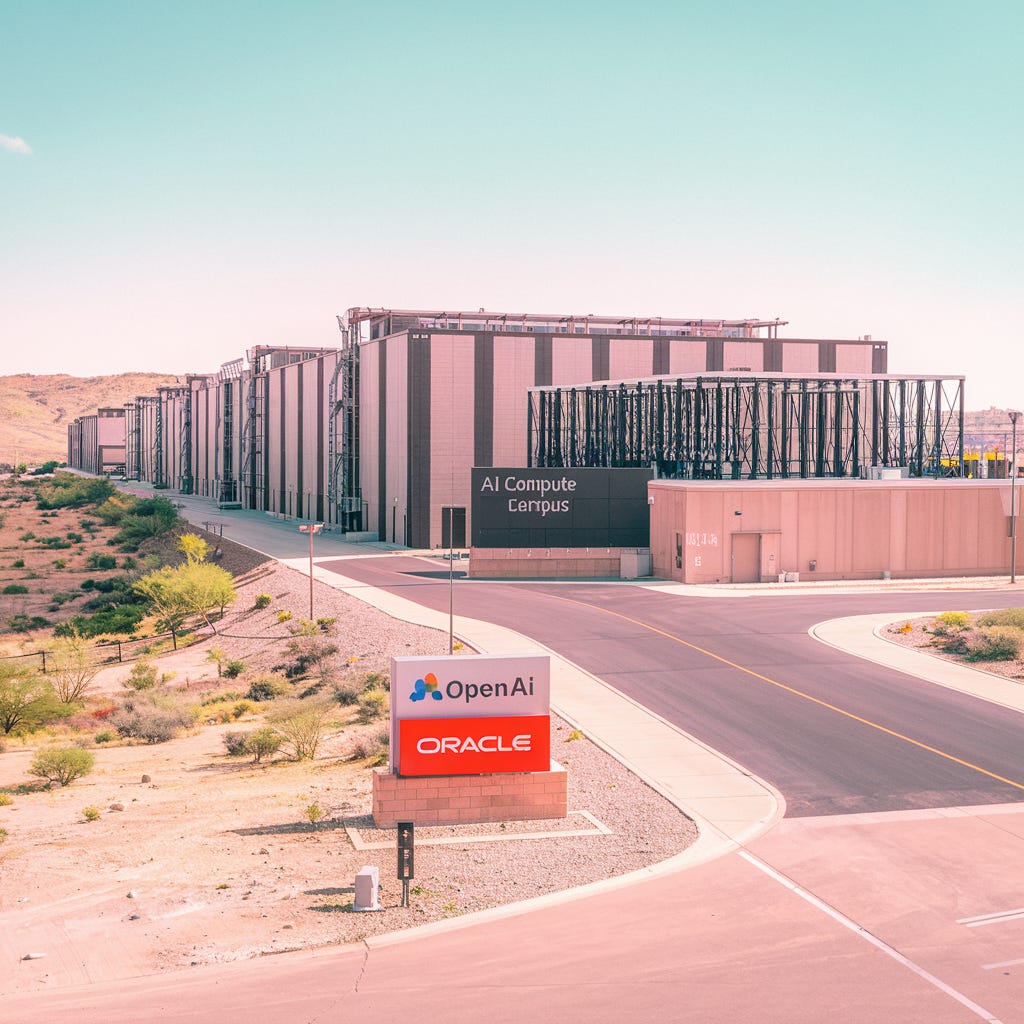The AI Power Shift: Why Compute, Not Code, Will Decide the Future
AI isn't just evolving—it’s consolidating. The future of artificial intelligence won’t be decided by who has the best models, but by who controls the most compute power.
For years, the AI race seemed to be about algorithms.
The best research teams, the smartest models, and the most cutting-edge architectures were the focus. But that era is shifting—fast.
Now, the real battle is happening in data centers, not research labs.
And OpenAI, in partnership with Oracle, is making a $100B move that could change AI’s trajectory forever.
The $100 Billion Power Play
At the heart of this transformation is Stargate, a next-generation AI infrastructure project. The first site, set in Abilene, Texas, is designed to house 64,000 Nvidia GB200 superchips by 2026. The scale is unprecedented. But more importantly, it signals a strategic shift:
AI isn’t just about better models anymore—it’s about who owns the hardware to run them.
Compute power is becoming the ultimate bottleneck for AI innovation.
The companies that control these massive AI clusters won’t just lead the industry—they’ll define its rules.
This is where OpenAI and Oracle’s partnership becomes a game-changer.
A Strategic Alliance That Redraws the AI Map
OpenAI is known for pushing the boundaries of AI research. Oracle, on the other hand, is an infrastructure powerhouse. Together, they’re creating one of the largest AI compute hubs in history.
🔹 OpenAI focuses on designing and scaling next-gen AI models, including potential AGI.
🔹 Oracle ensures they have the cloud and data center infrastructure to run those models at scale.
This isn’t just about collaboration—it’s about control.
Oracle isn’t merely providing cloud resources; they’re building a proprietary AI infrastructure moat. That means:
OpenAI won’t have to rely as heavily on competitors like Microsoft or AWS for cloud computing.
Oracle secures a dominant foothold in the AI revolution.
Nvidia cements its place as the undisputed leader in AI chips.
In other words, this is not just a data center—it’s an AI stronghold.
AI Compute: The New Oil?
If AI is the new electricity, then data centers are the power grid. And OpenAI and Oracle are building some of the largest AI power plants the world has ever seen.
Compare Stargate to previous AI infrastructure investments, and the difference is stark:
🔹 Microsoft & Google have steadily expanded their cloud AI capabilities, but in incremental phases.
🔹 Meta is spending billions on AI training clusters but remains dependent on external chip suppliers.
🔹 Stargate, however, is a full-scale AI compute empire—designed to handle not just today’s AI needs, but the coming decade’s.
This raises an important question: 👉 Are we moving toward an era where only trillion-dollar giants can compete in AI?
What This Means for Developed vs. Emerging Markets
In developed markets, projects like Stargate will fuel AI breakthroughs in industries like healthcare, finance, and manufacturing. But for emerging markets, the story could be very different:
🔹 Compute access will become a major barrier. AI innovation could become centralized in the hands of a few nations and companies.
🔹 Local AI ecosystems may struggle to compete, potentially widening the global AI divide.
🔹 New regional AI hubs may emerge as governments and corporations seek to build sovereign AI infrastructure.
Will nations without their own AI supercomputing capacity be left behind? Or will this drive investment in more decentralized, democratized AI solutions?
Where AI Is Headed Next
We’re entering a new era where AI leadership isn’t just about better models—it’s about who owns the compute power to run them. And that means the future of AI might look very different from what most expect:
🔹 Hyperscalers will consolidate AI compute power. Expect Google, Microsoft, and Amazon to follow suit with their own massive AI clusters.
🔹 Specialized AI chips will explode in demand. Nvidia’s dominance won’t go unchallenged—expect more competition from Intel, AMD, and emerging AI chip startups.
🔹 Governments may step in. AI compute is becoming a national security issue, which could trigger regulations, subsidies, or even government-owned AI data centers.
The real takeaway?
AI is no longer just about who builds the smartest models. It’s about who controls the infrastructure to train and run them.
🚀 In the end, AI leadership won’t be decided by innovation alone—it will be decided by who can afford to innovate.

